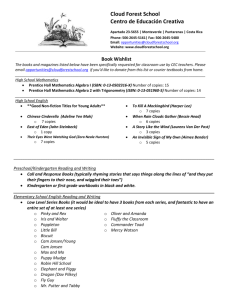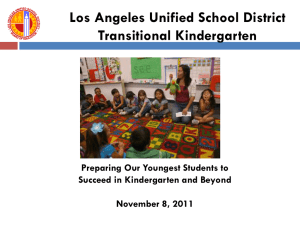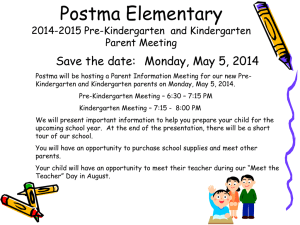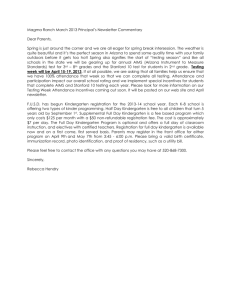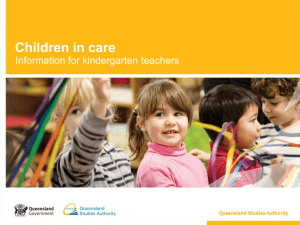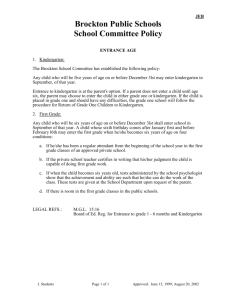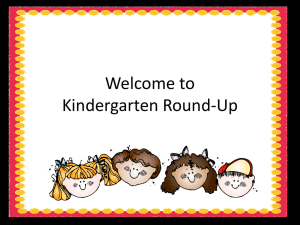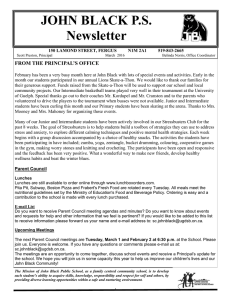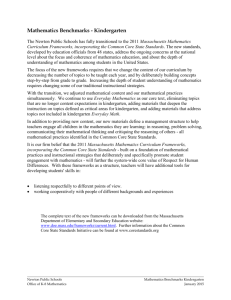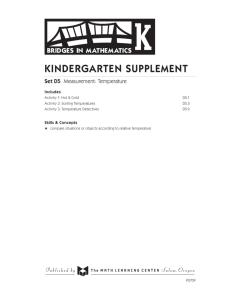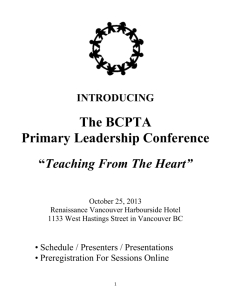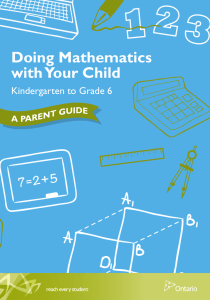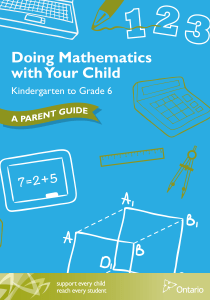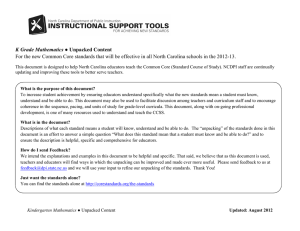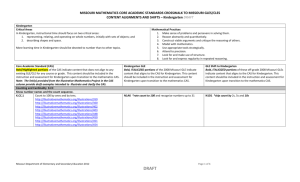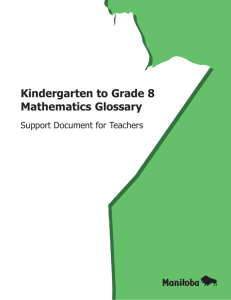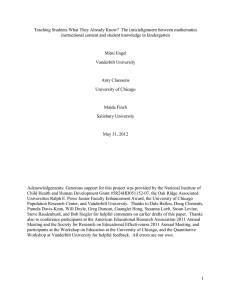Welcome to Oxford Schools
advertisement
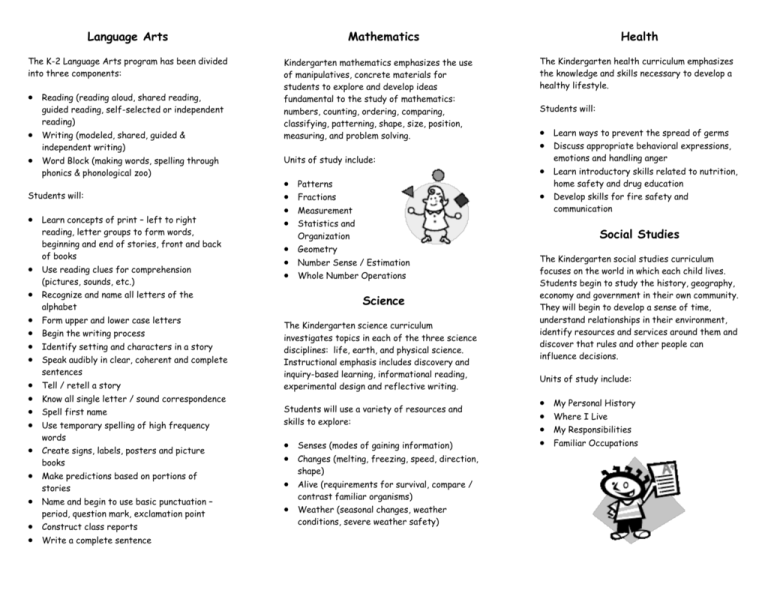
Language Arts The K-2 Language Arts program has been divided into three components: Mathematics Writing (modeled, shared, guided & Kindergarten mathematics emphasizes the use of manipulatives, concrete materials for students to explore and develop ideas fundamental to the study of mathematics: numbers, counting, ordering, comparing, classifying, patterning, shape, size, position, measuring, and problem solving. Word Block (making words, spelling through Units of study include: Reading (reading aloud, shared reading, guided reading, self-selected or independent reading) independent writing) phonics & phonological zoo) Students will: Learn concepts of print – left to right reading, letter groups to form words, beginning and end of stories, front and back of books Use reading clues for comprehension (pictures, sounds, etc.) Begin the writing process Identify setting and characters in a story Speak audibly in clear, coherent and complete sentences Tell / retell a story Know all single letter / sound correspondence Spell first name Use temporary spelling of high frequency words Social Studies Geometry Number Sense / Estimation Whole Number Operations Science The Kindergarten science curriculum investigates topics in each of the three science disciplines: life, earth, and physical science. Instructional emphasis includes discovery and inquiry-based learning, informational reading, experimental design and reflective writing. Students will use a variety of resources and skills to explore: stories period, question mark, exclamation point Construct class reports Write a complete sentence Learn introductory skills related to nutrition, Statistics and Organization Alive (requirements for survival, compare / Name and begin to use basic punctuation – emotions and handling anger communication books Make predictions based on portions of Learn ways to prevent the spread of germs Discuss appropriate behavioral expressions, Measurement Senses (modes of gaining information) Changes (melting, freezing, speed, direction, Create signs, labels, posters and picture Students will: Develop skills for fire safety and Fractions alphabet Form upper and lower case letters The Kindergarten health curriculum emphasizes the knowledge and skills necessary to develop a healthy lifestyle. home safety and drug education Patterns Recognize and name all letters of the Health shape) contrast familiar organisms) Weather (seasonal changes, weather conditions, severe weather safety) The Kindergarten social studies curriculum focuses on the world in which each child lives. Students begin to study the history, geography, economy and government in their own community. They will begin to develop a sense of time, understand relationships in their environment, identify resources and services around them and discover that rules and other people can influence decisions. Units of study include: My Personal History Where I Live My Responsibilities Familiar Occupations Physical Education The physical education curriculum provides the programs, activities, and instruction necessary to develop healthy, lifelong, responsible citizens. Art The Kindergarten art curriculum emphasizes imagination and personal experiences. Students will: Students will: Learn activities that increase muscular flexibility, strength & cardiovascular endurance Be introduced to the concepts of personal & general space Be introduced to selected locomotor skills (walking, running, skipping, jumping, hopping) Learn creative & rhythmic movement Learn balancing & tumbling skills Be introduced to ball manipulating and Study artists Mondrian and Seurat Identify types of media Learn that feelings can be expressed through art Listen to and share opinions and feelings about art and the purpose of creating art that result from physical activity Begin to understand good sportsmanship Begin to develop good patterns for lifelong physical activities Technology Our elementary schools incorporate technology into all areas of the curriculum. Students are introduced to word processing, and engage in projects such as book reviews, class newspapers, book publishing, research reports, multimedia projects, and telecommunications with children in other schools via on-line resources. Areas of study include: Keyboarding Word Processing Network Programs Multimedia Curriculum Guide Distinguish between works of specific artists Acquire basic skills for drawing, painting, collage, printmaking, sculpture, fibers, and clay striking skills Begin to apply rules of games Begin to understand the effects & feelings Oxford Area Community Schools General Music Students will develop an appreciation and understanding of music. Students will: Perform vocally and on instruments, alone and with others, a varied repertoire of music Echo short rhythmic Information for Parents and melodic patterns Recognize dynamic contrasts (loud & soft) Distinguish between high & low pitches Compose and improvise using voice, movement, and/or instrument Learn about symbols Identify instruments by name and sound Learn various composers (John Philip Sousa) This guide is intended as a brief overview. For more complete information about the Oxford Area Community Schools’ curriculum, please visit our district website at: www.oxford.k12.mi.us

